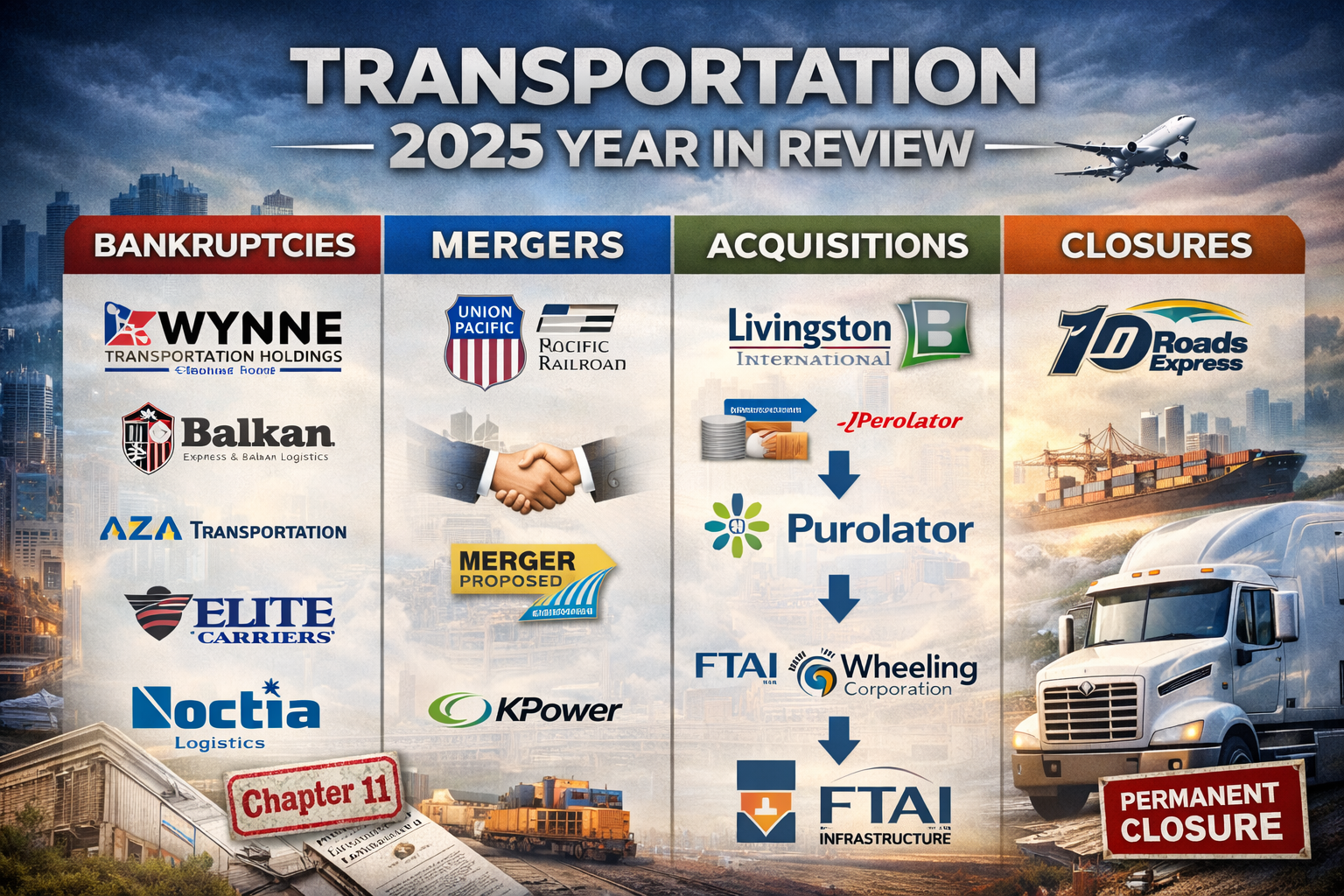Tax Planning Tips for Selling Your Trucking Business
Share this Article:
Selling a trucking company is a significant financial event that carries long-term tax consequences. Without proper planning, owners risk leaving money on the table or facing unexpected liabilities after closing. Tax planning helps identify opportunities to reduce exposure, improve deal terms, and prepare for the next stage. Careful preparation allows sellers to protect the value they have built while making the transition more efficient for both parties.
Why Tax Planning Matters When Selling a Trucking Company
The sale of a trucking business involves more than transferring assets and contracts. It triggers a wide range of tax consequences that can significantly affect the seller’s net proceeds. Decisions about deal structure, the timing of the sale, and the allocation of purchase price all shape the ultimate tax outcome.
Trucking companies often operate across multiple states, which adds another layer of complexity. Sales tax, fuel tax, and payroll obligations can create hidden liabilities that reduce deal value if not addressed in advance.
Tax planning provides clarity before negotiations begin. It positions sellers to address risks, maintain compliance, and present accurate financials. This preparation strengthens bargaining power, helps
reduce taxes, and protects long-term financial goals.
Key Tax Considerations Before You Sell
Selling a trucking company requires a close look at tax exposure across different areas of the business. Buyers often review tax history in detail, and any gaps can affect price or delay closing. Planning in advance helps uncover issues and allows time to address them.
Deal Structure: Asset Sale vs. Stock Sale
Deal structure directly affects tax results. In an asset sale, individual assets are transferred, which may trigger sales tax, depreciation recapture, and gain recognition. A stock sale transfers ownership interests, shifting how gains are taxed and which liabilities carry forward.
Multistate Sales & Use Tax Exposure
Trucking companies frequently purchase equipment, parts, and services in multiple states. If exemption certificates are missing or sales tax was overlooked, buyers may require adjustments in the deal.
Nexus and Registration Issues
Operating across jurisdictions often creates filing obligations. Unregistered activity can leave unpaid taxes behind. Addressing nexus before selling helps reduce surprises during due diligence.
Fuel, Excise, and Other Indirect Taxes
Trucking companies often face additional tax exposure tied to fuel and excise obligations. The International Fuel Tax Agreement (IFTA) requires accurate tracking of mileage and fuel usage across multiple jurisdictions. If records are incomplete or filings contain errors, these liabilities can transfer to the buyer.
Federal excise tax compliance, including heavy vehicle use tax filings, should also be reviewed before a sale. Mistakes or unpaid balances may reduce the purchase price or delay negotiations.
Other indirect taxes, such as weight-distance or highway use fees, can create further complications. Addressing these items early through tax planning reduces risk and presents the company as better prepared for a smooth transaction.
Sales Tax on the Sale Itself
The sale of a trucking business may trigger sales tax depending on how the transaction is structured and where the assets are located. States often treat the transfer of equipment, parts inventory, or even certain service contracts as taxable. If the seller assumes these items are exempt without proper documentation, the liability can shift to the buyer or reduce the overall deal value.

Another factor is the allocation of the purchase price between tangible and intangible assets. Tangible assets, such as tractors and trailers, are more likely to be subject to sales tax. Reviewing these rules in advance through tax planning helps avoid last-minute adjustments and supports a cleaner closing process.
Buyer Due Diligence: Prepare in Advance
Buyers in transportation transactions often review years of tax history before finalizing a deal. They look closely at sales tax, payroll compliance, fuel reporting, and multistate registrations. Any gaps in filings or missing documentation may raise concerns that affect purchase terms.
Sellers who prepare in advance can present stronger financial records and reduce negotiation friction. This means gathering exemption certificates, fuel tax filings, payroll records, and local registration documents ahead of time. It also includes addressing unresolved notices or correcting past errors before due diligence begins.
Proactive preparation through tax planning not only protects deal value but also builds confidence for buyers considering the purchase of a trucking company.
Post-Sale Tax Considerations
Selling a trucking company does not end tax responsibilities. Sellers may still face obligations tied to final returns, allocation of purchase price, and potential audits of past activity. If the deal includes installment payments, the timing of income recognition can influence overall liability.

Some sellers remain responsible for taxes that accrued before the sale but were discovered afterward. Indemnification clauses in the purchase agreement often address these situations, but preparation reduces the risk of disputes.
Post-sale planning also includes evaluating how proceeds are used. Reinvestment, retirement, or succession goals each carry unique tax outcomes. Thoughtful tax planning after the transaction helps sellers protect the value gained from years of building their business.
How Transportation Tax Consulting Supports You
Transportation Tax Consulting helps sellers navigate the complex tax issues that surface during the sale of a trucking company. Our team reviews exposure areas such as sales and use tax, fuel tax, payroll obligations, and multistate compliance to identify risks before they affect deal value.
We also assist in preparing records for buyer due diligence, resolving documentation gaps, and reviewing transaction structure for potential tax impact. This proactive approach strengthens negotiations and creates a smoother closing process.
After the sale, we support sellers in addressing final filings, managing allocation questions, and planning for the tax treatment of proceeds.
Our expertise helps protect financial outcomes at every stage of the transaction.
Key Takeaways
Selling a trucking company involves more than finding the right buyer. Tax planning plays a central role in protecting deal value, reducing risk, and preparing for negotiations. Key considerations include deal structure, sales and use tax exposure, multistate obligations, and post-sale responsibilities. Addressing these issues early makes the process smoother and strengthens the seller’s position.
Transportation Tax Consulting provides industry-focused expertise to help sellers prepare, identify risks, and plan effectively.
Contact us today to schedule a consultation and safeguard the value of your business.
Share with Us:




